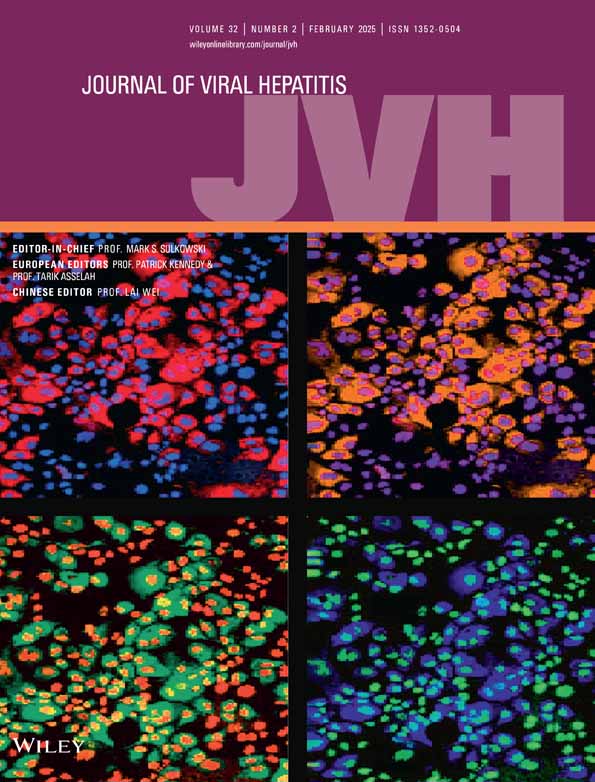Immunotherapy Using HBV Vaccine Pulsed DCs and Induced T-Cells Combined Antiviral Drugs in Treatment Naive CHB Patients-A Multi-Centre Phase II Study
Funding: This study was supported by the National Grant Program on Key Infectious Disease (2014ZX10002002-002) and Research and Development Planned Project in Key Areas of Guangdong Province (grant number: 2019B110233002). The study was independent of the fundings.
Yurong Gu and Lin Gu are co-first authors.
ABSTRACT
Dendritic cells are the most potent antigen-presenting cells in immune therapeutic approaches for chronic hepatitis B (CHB) infection. Here, we developed a clinical trial to evaluate the efficacy and safety of autologous HBV vaccine-pulsed DCs and their induced T cells (HPDCT) in CHB patients. This was a randomised, prospective, open-label, multicentre, superiority study and 309 treatment-naive CHB patients were divided into HPDCT plus nucleos(t)ide analogues (NAs) group (n = 84), NAs mono-therapy group (n = 82), HPDCT plus Peg-interferon (Peg-IFN) group (n = 69), Peg-IFN mono-therapy group (n = 74). Twelve times of HPDCT vaccinations were given intravenously, and all the patients were followed up for 72 weeks. In total, 1836 HPDCT infusions were administered with no obvious toxicity and side effect although few patients had self-limited low fever. More patients got HBsAg loss in those receiving HPDCT therapy. Patients of HPDCT plus Peg-IFN group with HBV DNA < 1 × 107 IU/mL at baseline exhibited earlier, stronger and longer lasting of viral response, especially HBV DNA < 20 IU/mL, than those patients of Peg-IFN mono-therapy group, from week 24 till week 72 (p < 0.05). Comparable efficacy was observed between the patients of HPDCT plus NAs group and NAs mono-therapy groups. In addition, CD25 on CD8+ T cells and HBV-specific CD8+ T cell increased significantly in patients of HPDCT combined antiviral drugs therapy. HPDCT combined with antiviral drugs was safe and able to enhance T cell immunity. Furthermore, HPDCT combined with Peg-IFN could provide an incremental benefit to patients with baseline levels of lower HBV DNA.
Trial Registration: ClinicalTrials.gov identifier: NCT01935635
Conflicts of Interest
Part of the antiviral drugs Peg-interferon (Peg-IFN) and entecavir (ETV), which were free for patients, were donated by the Roche and Bristol-Myers Squibb separately.
Open Research
Data Availability Statement
The data that support the findings of this study are available from the corresponding author upon reasonable request.




